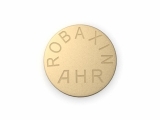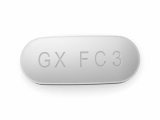Does erectile dysfunction cause depression
Erectile dysfunction (ED) is a medical condition characterized by the inability to maintain or achieve an erection sufficient for sexual activity. It affects millions of men worldwide and can be caused by several factors, including psychological factors such as stress, anxiety, and depression. Depression is a serious mental health disorder that affects a person's mood, thoughts, and behavior and can lead to persistent feelings of sadness and loss of interest in activities.
Studies have suggested that there may be a link between ED and depression. Men with depression are more likely to experience ED than those who do not have the condition. Studies have also shown that treating depression can lead to an improvement in ED symptoms. However, there is still much to be learned about the relationship between ED and depression and the best treatments to improve both conditions.
This article aims to explore the connection between ED and depression and discuss the potential treatments available to improve both conditions. It will also discuss the impact that ED and depression can have on a person's quality of life and relationships and the importance of seeking professional help if you are experiencing symptoms of either condition.
The Prevalence of Erectile Dysfunction and Depression
Erectile Dysfunction
Erectile dysfunction (ED) is a common condition that affects many men at some point in their lives. It is estimated that up to 52% of men between the ages of 40 and 70 will experience some degree of ED.
ED is defined as the inability to achieve or maintain an erection sufficient for sexual intercourse. It can be caused by a variety of factors, including psychological, physiological, and lifestyle factors.
Depression
Depression is a common mental health condition that affects millions of people around the world. It is estimated that up to 10% of men will experience depression at some point in their lives.
Depression is characterized by low mood, feelings of sadness or hopelessness, and a loss of interest in activities that were once enjoyable. It can be caused by a variety of factors, including genetics, life events, and brain chemistry.
The Link between Erectile Dysfunction and Depression
There is growing evidence to suggest that there is a strong link between ED and depression. Studies have found that men with ED are more likely to experience symptoms of depression, and men with depression are more likely to experience symptoms of ED.
The exact nature of the link between ED and depression is not fully understood, but it is thought to be a combination of psychological and physiological factors. Depression can cause changes in brain chemistry that affect sexual function, while ED can cause feelings of anxiety and low self-esteem that can trigger or worsen symptoms of depression.
Treatment Options
Treatment for ED and depression can vary depending on the underlying cause and severity of symptoms. In some cases, lifestyle changes such as exercise and healthy eating can be effective in improving symptoms. In other cases, medication or therapy may be needed to manage symptoms.
If you are experiencing symptoms of ED or depression, it is important to talk to your healthcare provider to discuss treatment options and develop a plan that is right for you.
The potential causes of erectile dysfunction and depression connection
1. Psychological factors
One of the most common causes of erectile dysfunction (ED) is stress and depression. Depression and anxiety can lead to low self-esteem, low libido, and difficulty achieving or maintaining an erection. These conditions can interfere with the brain's ability to produce the chemicals necessary for a healthy sexual response.
Depression is a common illness that affects the way we think, feel, and behave. When we are depressed, we may feel sad, hopeless, and worthless. These feelings can lead to sexual dysfunction, including ED.
2. Physical factors
Physical factors such as obesity, diabetes, high blood pressure, and heart disease are also known to cause ED. Studies suggest that these conditions may increase a person's likelihood of developing depression. For instance, people with diabetes may feel overwhelmed by the demands of managing their condition. They may become depressed due to the stress, which can interfere with sexual function.
3. Medications
Some medications used to treat depression, such as selective serotonin reuptake inhibitors (SSRIs), may cause sexual dysfunction. These drugs are known to reduce libido and cause erectile dysfunction in some people. People taking antidepressants may need to work with their doctor to find a medication that does not affect their sexual function.
4. Lifestyle choices
Poor lifestyle choices such as smoking, excessive alcohol consumption, and drug abuse can cause ED and depression. These behaviors cause damage to the body and can lead to poor sexual health. People who experience ED or depression should work to improve their overall health by exercising regularly, eating a healthy diet, and avoiding harmful behaviors.
Conclusion
The causes of ED and depression are often complex and intertwined. There is no one-size-fits-all solution to these conditions, and treatment often involves a combination of approaches. People experiencing symptoms of ED or depression should talk to their doctor about their feelings and concerns. They can help identify the underlying causes of their symptoms and develop a plan for managing or treating the condition.
The psychological aspect of erectile dysfunction and depression relationship
Mental health impact on erectile dysfunction
Erectile dysfunction has been linked to poor mental health, including depression and anxiety. Psychological factors that contribute to this condition may be related to stress, low self-esteem, or a history of sexual abuse. Men may struggle with feelings of inadequacy and inferiority when they experience difficulty achieving or maintaining an erection during sexual activity.
The role of depression in erectile dysfunction
Depression is a common mental health condition that affects millions of men worldwide. It has been linked to erectile dysfunction due to its effects on the body's hormonal balance, blood circulation, and cognitive function. Depression is known to cause fatigue, lack of energy, and decreased libido in men, leading to a reduced interest in sexual activity.
Treatment options for erectile dysfunction and depression
Treating erectile dysfunction often involves a combination of psychological and medical interventions. Men may benefit from counseling or therapy to address underlying psychological factors that contribute to their condition. Medications such as sildenafil and tadalafil have been effective in treating erectile dysfunction by improving blood flow to the penis.
Treating depression can also help improve erectile function, as it can reduce stress, boost self-esteem, and improve overall emotional well-being. Antidepressant medications may also be prescribed to help manage depressive symptoms in men.
In conclusion, the relationship between erectile dysfunction and depression is complex and multifaceted. While medical interventions can be effective in addressing the physical causes of erectile dysfunction, the psychological aspect of this condition should not be ignored. Identifying and addressing mental health concerns can help men manage their symptoms and improve their overall quality of life.
The impact of treatment for depression on erectile dysfunction
Introduction
Many men who suffer from depression also experience erectile dysfunction (ED). This can be a major source of distress and impact on their quality of life. However, there is evidence to suggest that successful treatment of depression can also improve ED.
SSRIs
Selective serotonin reuptake inhibitors (SSRIs) are commonly used to treat depression. However, they are also known to cause sexual side effects, including ED. Fortunately, there are other antidepressant medications that do not have this effect. It is important for doctors to discuss the potential sexual side effects of antidepressants with their patients and consider alternative medications if necessary.
Cognitive behavioral therapy
Cognitive behavioral therapy (CBT) is a type of therapy that has been shown to be effective for both depression and ED. This type of therapy involves helping patients to identify and change negative thought patterns that may be contributing to their symptoms. By changing these thought patterns and improving their mood, patients may also see an improvement in sexual functioning.
Conclusion
ED is a common problem among men with depression, but it is not inevitable. Successful treatment for depression can also lead to an improvement in ED. Patients should discuss the potential sexual side effects of antidepressants with their doctors and consider alternative treatments if necessary. CBT is also a promising treatment option for both depression and ED. It is important to address both conditions in order to improve overall health and quality of life.
The Benefits of Treating Both Conditions Simultaneously
Improved Quality of Life
When both erectile dysfunction and depression go untreated, it can lead to a decreased quality of life. However, treating both conditions simultaneously can help improve a person's overall well-being. By addressing both conditions, individuals can begin to see improvements in their sexual and mental health, which can lead to a better overall quality of life.
Enhanced Treatment Results
Treating both erectile dysfunction and depression together allows for a more holistic approach to treatment. Addressing one condition can lead to improvements in the other, and vice versa. By treating both conditions in tandem, individuals may experience more significant improvements in their symptoms, leading to better overall treatment results.
Reduced Risk of Relapse
Treating only one condition can increase the risk of relapse in the other. For example, treating depression alone may not address the underlying causes of erectile dysfunction, leading to a relapse in sexual health symptoms. By treating both conditions simultaneously, individuals can reduce the risk of relapse and may see long-term improvements in their sexual and mental health.
Improved Relationships
Both erectile dysfunction and depression can impact relationships with partners and loved ones. When both conditions are addressed together, individuals may experience improved intimacy and emotional connection with their partners. Addressing both their sexual and mental health needs can lead to a healthier and more fulfilling relationship overall.
Increased Treatment Adherence
When individuals see improvements in both their mental and sexual health, they may be more likely to adhere to their treatment plan. By addressing both conditions at once, individuals can feel a greater sense of progress and may be more motivated to continue treatment. This increased motivation can lead to better overall treatment adherence and more substantial improvements in symptoms.
Tips for managing erectile dysfunction and depression
Communicate with your partner
Erectile dysfunction and depression may cause a strain on your relationship. It’s important to have honest and open communication with your partner about what you are experiencing. Be sure to listen to their concerns and feelings as well. Working together as a team can help strengthen your bond and alleviate any emotional strain.
Seek Treatment
It’s important to seek professional treatment for both erectile dysfunction and depression. Erectile dysfunction can sometimes be caused by underlying medical conditions or medications, so it’s important to see a doctor to rule out any potential issues. Depression can also be treated with therapy, medications, or a combination of both. Seeking treatment can greatly improve your symptoms and overall quality of life.
Exercise and Diet
Maintaining a healthy lifestyle can also improve symptoms of erectile dysfunction and depression. Exercise releases endorphins that can boost your mood and self-esteem. A healthy diet can help improve blood flow and overall health, which can in turn improve erectile function. It’s important to consult with a doctor before starting any new exercise or diet routine.
Reduce Stress
Stress can worsen both erectile dysfunction and depression. Finding healthy ways to manage stress, such as through meditation or yoga, can improve your overall well-being. It’s also important to make time for self-care and relaxation.
Consider Therapy
Therapy can be beneficial for both erectile dysfunction and depression. A therapist can help you navigate any emotional issues related to your symptoms and provide coping strategies. Couples therapy can also be helpful for strengthening your relationship and improving communication.
Join a Support Group
Joining a support group can provide emotional support and a sense of community. It can also provide a safe space to discuss your experiences without fear of judgment. There are many online and in-person support groups available for both erectile dysfunction and depression.
Follow us on Twitter @Pharmaceuticals #Pharmacy
Subscribe on YouTube @PharmaceuticalsYouTube





Be the first to comment on "Does erectile dysfunction cause depression"